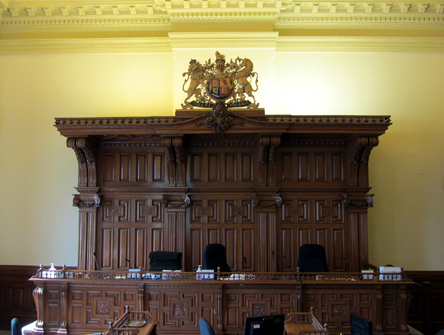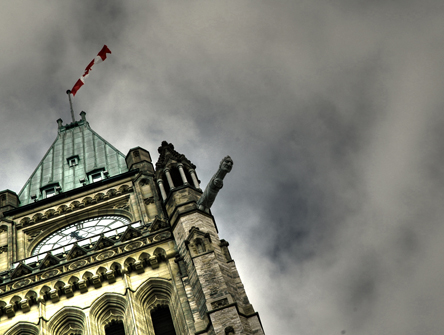Eroding the independence of the bar and judiciary
CBA files submissions in challenge of ‘sweeping and unprecedented’ changes to the regulation of lawyers in B.C.

The Canadian Bar Association has filed written submissions as an intervenor in two cases challenging British Columbia’s plans to create a single legal regulator.
In May 2024, the provincial government passed the Legal Professions Act to regulate lawyers, notaries, and paralegals under a single regulator, Legal Professions British Columbia. The act also creates a new category of regulated paralegals to handle certain legal matters and expands the scope of notaries public to cover more day-to-day matters.
The Law Society of British Columbia and the Trial Lawyers Association of BC quickly filed constitutional challenges to the validity of the legislation, arguing Bill 21 erodes the independence of the bar and judiciary. The trial is set to begin in October.
Until now, there has been a 32-person system of governance in the province, with the Law Society overseen by 25 lawyers elected by their peers in the profession and up to six non-lawyers appointed by the province. Elected lawyers comprise a substantial majority of the Law Society’s membership, ensuring self-regulation.
In contrast, under the new legislation, there will be a one-lawyer majority on the regulator’s 17-person board, with four of the nine lawyers appointed by the province. That means elected lawyers will comprise only five of 12 board members at best. The CBA’s BC branch has said that lawyers need more than a slim majority represented on a regulator’s board to be independent. Further, those lawyers must not be appointed — they must be elected.
“It transforms the regulatory framework from one of self-regulation to one of co-governance,” the CBA's written submissions state.
Bill 21 also eliminates lawyers’ ability to introduce and vote on referendum questions that bind the Law Society.
The legislation includes provisions aimed at advancing reconciliation and amplifying the voices of Indigenous people, which the CBA deems important.
As the voice of the profession, the Association is not arguing that a single legal regulator is necessarily problematic. However, any regulator, single or not, must be independent. Connor Bildfell, a lawyer with McCarthy Tétrault in Vancouver and counsel for the CBA, says the threat posed to that is at the core of the Association’s opposition to the legislation, which has larger implications for the legal profession.
“The court's ultimate decision will have significant implications for the independence of the bar, which is a cornerstone of our justice system as a whole. The issues here are absolutely vital,” he says.
The Constitution promises everyone in Canada access to independent courts, a fair trial and a right to counsel, and the rule of law — promises the CBA says ring hollow without an independent, self-regulating bar.
The Association argues that Bill 21 undermines public confidence and access to a free and fair justice system by interfering with lawyers' constitutionally protected role, eliminating self-regulation, and giving the state new powers and control over lawyer regulation.
“The rule of law would mean nothing without an independent bar charged with advising and advocating for their clients independently, free from any state control or influence,” the submission says, particularly when the state “is far and away the country’s most frequent and powerful litigant.”
“This independence allows lawyers to hold state actors to account on behalf of their clients and ensure those clients fully enjoy theirlegal rights and fully comply with their legal duties.”
Ultimately, without an independent bar, there can be no independent judges.
“There's a clear connection,” Bildfell says.
“Judges are drawn from the bar by and large, and so in order to have an independent judiciary, we need to have an independent bar.”
The CBA says given the “sweeping and unprecedented” changes to the regulation of lawyers in the province, the legislation is an outlier in Canada and the world.
“No other professional regulatory regime interferes with the independence of the bar in the way Bill 21 does,” the submission says.
Despite calls for meaningful engagement and consultation, the CBA says that did not happen. No draft legislation was provided until Bill 21 was introduced in the legislature on April 10, 2024. Before it passed, only 30 of its 317 clauses were debated in the legislature.
“The lack of meaningful consultation with the bar before Bill 21’s passage was itself inconsistent with the concept of self-governance, which requires that lawyers be meaningfully engaged and at a minimum have a voice in their own regulation,” the CBA’s submission says.
The province says the legislation aims to provide more choices to people when they need legal assistance.
“When you need legal assistance, you shouldn’t have to choose between straining your finances or navigating a complicated legal matter on your own,” Attorney General Niki Sharma said in a release when Bill 21 was tabled.
“We’re giving more people more options and helping level the playing field for people trying to resolve their legal issues.”
However, Bildfell says one of the concerns the CBA and other organizations have expressed is that it's not at all clear that this bill will improve access to justice.
“In fact, there are good arguments that it will do the very opposite.”


